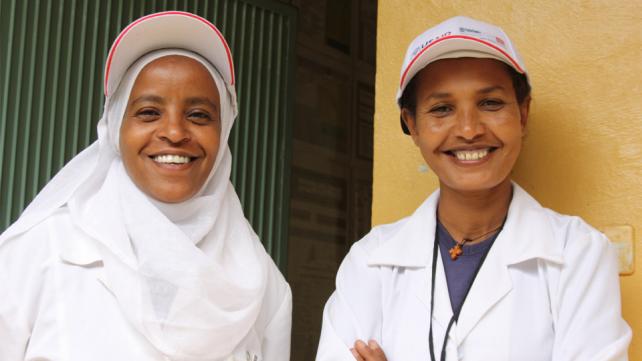
For most Canadian Muslims, Winnipeg may not be the first place that comes to mind when thinking about solutions to serious challenges facing a growing number of Muslims today.
But that’s where a group of 30 Muslim community leaders, imams, social service providers and activists gathered at the end of April for a four-day training course on counselling Muslims in North America, organized by the Islamic Social Services Association (ISSA) based in Winnipeg. ISSA is one of the leaders in the effort to help Canadian Muslims cope with issues facing them and their families.
Since imams are often the first point of contact for those in need of help yet often have zero training in providing social services, this was an outstanding opportunity for them to meet professionals, share experiences and acquire important skills to help them in providing adequate care. Although many imams wanted to attend, most could not do so due to a lack of willingness on the part of their mosque’s management to fund their trip as the cause wasn’t considered worthy enough.
To their credit, the Islamic Society of Kingston executive did not hesitate in supporting and funding my participation in this course, alhamdulillah.
When I arrived for my flight out of Toronto, I met two other imams also on their way to Winnipeg for the course. Sadly, out of the 30 participants, we were the only three mosque leaders in attendance.
The training course began immediately after our arrival on the afternoon of Friday, April 27 and lasted until just before our return flights on Monday, April 30, with very few breaks in between. Even with such a packed schedule, there were much left to be learned and many discussions to be had. Yet, the excellent mix of very experienced and knowledgeable speakers and engaged attendees provided an intellectually stimulating and enjoyable experience.
Major themes included the etiquettes and manners of providing services in a compassionate and professional manner, addressing domestic violence (especially from a religious perspective), dealing with cases of sexual abuse, providing spiritual counsel, pre-emptive measures against and possible solutions for marital discord, and the causes and treatments for addictions.
Most presenters linked their messages with Islamic concepts, which enriched the content and will assist participants in providing solutions that are grounded in the values and teachings of our faith.
Hearing about the types of issues facing Muslim communities was depressing and very concerning.
For example, participants were told that there is a rise in mutual physical and psychological violence – sometimes severe – in Muslim communities. Domestic violence is resulting in more deaths than we’d like to believe. The presence of domestic violence is having a severe impact on children, as the majority of children in the juvenile delinquency system come from homes where this violence.
There is a rise in cases of incest, which are sometimes mutual, even between siblings. Sexual abuse is an unfortunate reality, yet cases are rarely reported and when they are, victims are often encouraged to remain silent.
Pornography is an addiction that is rampant, even in the Muslim community, yet people are not seeking treatment for it. Many people ask the question, is watching porn haram? but nobody seems to care on a serious note. It’s ripping homes apart, as men develop unrealistic expectations and eventually lose interest in their wives. More women are turning to porn, many times to find ways to satisfy their husbands. Young children are accessing porn on their mobile devices and developing addictions at an early age. Sexual dysfunction is one of the top reasons for divorce, with marriages not consummated for years in some marriages. Temporary marriages (which are not permissible according to Sunnis) are on the rise on campuses, in which girls are getting pregnant and the boys are walking away after two or three months.
These are just some of the realities faced by many Muslims across North America, yet these issues are rarely addressed. We must realize that these are not problems that affect other people, rather they are our problems and we must deal with them.
Our communities must start tackling the lack of social services designed to serve the needs of Muslims and make this a major priority. All Muslims deserve timely and quality care from social service providers who are sensitive to their needs.
My participation in the training course organized by ISSA in Winnipeg was a great first step. The training I received proved useful within days of my return, alhamdulillah.
Yet, there is much more to be done. Here are some suggestions to get us started:
- Start talking about these issues. The more we discuss them, the more importance we will give them.
Arrange for professionals to organize educational sessions on the issues facing our communities. - Provide support, financial and otherwise, to organizations such as ISSA, so that they can offer help to more people and expand their services.
- Encourage young members of our communities to become social workers and therapists.
- Offer training to imams and community leaders to help them address issues professionally and effectively.
- Seek help if we ever find ourselves in such situations, either as victims or as perpetrators. We cannot find solutions and bring positive change without being proactive.
May Allah help those currently experiencing difficulties, may He protect us and may He grant us lives filled with faith, peace and health. Ameen.
______________________
Sikander Hashmi is an imam, journalist, teacher and marketer based in Ottawa, Canada. You may visit his blog at www.sikander.ca








Add new comment